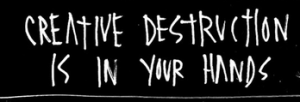This is one of those rants occasionally I feel a real need to express. Forgive me, normal service will be resumed after this ‘break’.
Coffee in hand, soapbox set up, let me begin.
Today, we are all struggling to transform ourselves in our businesses, even just within ourselves, to adjust to the current economic difficulties we all seem presently to be facing.
We are not only confronted with the toughest downturn in modern times but with all the pressures with the speed of decision-making, and technological advances that seem to just simply ‘suck up’ more of our daily lives instead of helping to resolve it.
We have the pressures of global competitiveness and calls that constantly are urging us to never stand still because others aren’t.
We often become overwhelmed by the merging, acquiring, and rethinking that is going on constantly around us, the changes in processes, new alliances and the sudden emergence of a ‘new kid on the block’ who sees a weakness and rapidly fills that gap overnight.
Oh yes, and we still are not very good at being more innovative!
Lots more hotfixes or a more radical redesign?
These pressures compel us to focus on a host of ‘quick fixes’ but what we are failing to recognize is where all these changes fit within our long term plans.
Just finding the opportunity to take out precious ‘thinking’ time to synthesise and reorganize ourselves seems impossible, we are just getting caught up in the flotsam of life, just bobbing along. Continue reading “Are we all upside down?”
